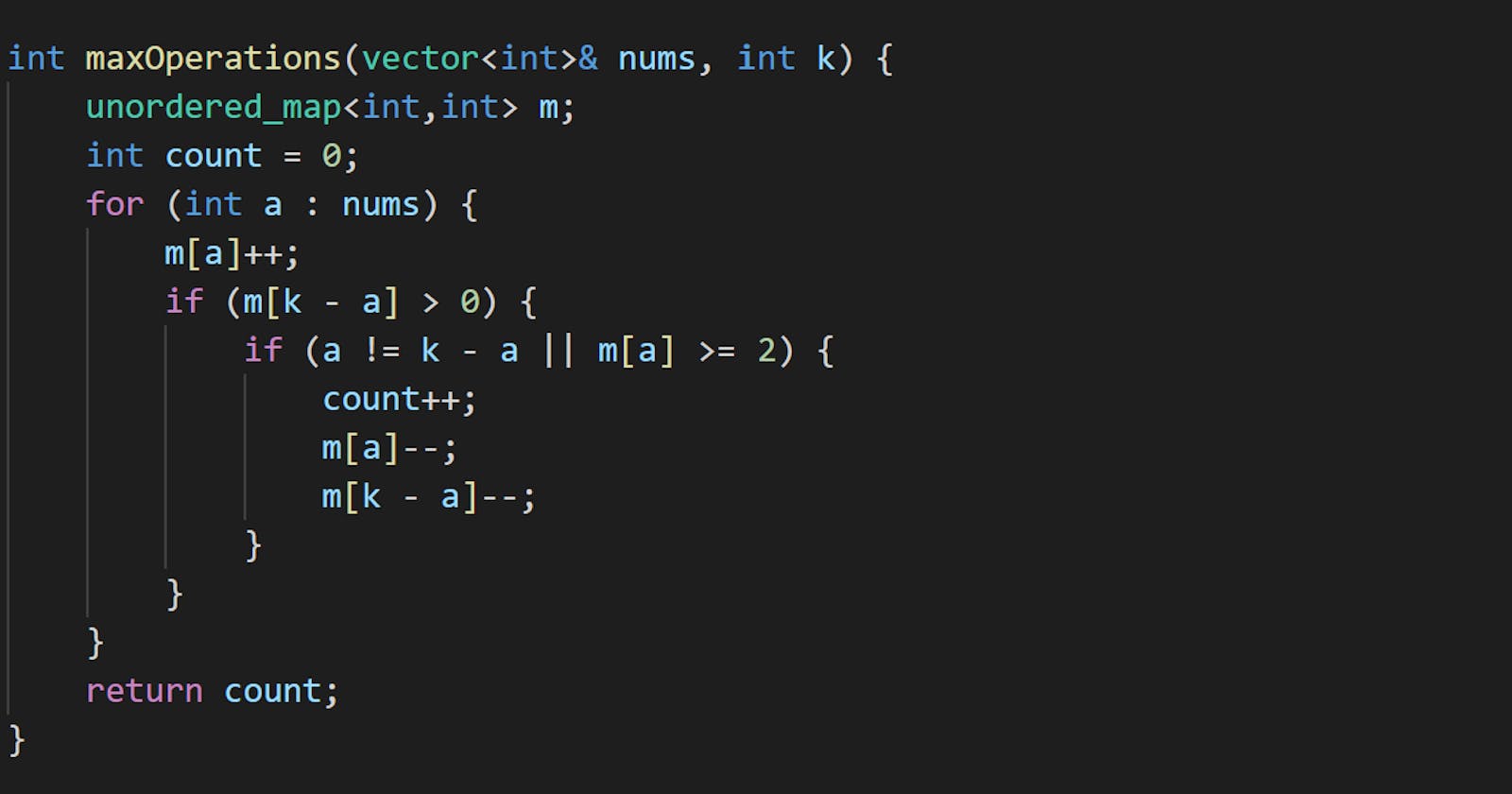How to solve Leetcode 1679. Max Number of K-Sum Pairs
An example of using unordered_map
Problem statement
You are given an integer array nums and an integer k.
In one operation, you can pick two numbers from the array whose sum equals k and remove them from the array.
Return the maximum number of operations you can perform on the array.
Example 1
Input: nums = [1,2,3,4], k = 5
Output: 2
Explanation: Starting with nums = [1,2,3,4]:
- Remove numbers 1 and 4, then nums = [2,3]
- Remove numbers 2 and 3, then nums = []
There are no more pairs that sum up to 5, hence a total of 2 operations.
Example 2
Input: nums = [3,1,3,4,3], k = 6
Output: 1
Explanation: Starting with nums = [3,1,3,4,3]:
- Remove the first two 3's, then nums = [1,4,3]
There are no more pairs that sum up to 6, hence a total of 1 operation.
Constraints
1 <= nums.length <= 10^5.1 <= nums[i] <= 10^9.1 <= k <= 10^9.
Solution: Count the appearances
You can use a map to count the appearances of the elements of nums.
Example 2
For nums = [3,1,3,4,3] and k = 6:
Initialize
count = 0.For
i = 0:m[3] = 1;k - 3 = 3butm[3]is only1, not enough to have two numbers.For
i = 1:m[1] = 1;k - 1 = 5andm[5] = 0.For
i = 2:m[3] = 2;k - 3 = 3andm[3] = 2just enough to have two numbers to perform the sum.count = 1. Erase those two values3's from the map:m[3] = 0.For
i = 3:m[4] = 1;k - 4 = 2andm[2] = 0.For
i = 4:m[3] = 1;k - 3 = 3butm[3]is only1, not enough to have two numbers.Final
count = 1.
Code
#include <vector>
#include <iostream>
#include <unordered_map>
using namespace std;
int maxOperations(vector<int>& nums, int k) {
unordered_map<int,int> m;
int count = 0;
for (int a : nums) {
m[a]++;
if (m[k - a] > 0) {
if (a != k - a || m[a] >= 2) {
count++;
m[a]--;
m[k - a]--;
}
}
}
return count;
}
int main() {
vector<int> nums{1,2,3,4};
cout << maxOperations(nums, 5) << endl;
nums = {3,1,3,4,3};
cout << maxOperations(nums, 6) << endl;
}
Output:
2
1
Complexity
Runtime:
O(N), whereN = nums.length.Extra space:
O(N).

